How to help birds during breeding season – 5 key things an avian expert urges every gardener to do
Lend a helping hand to garden wildlife by supporting birds during this important time of year
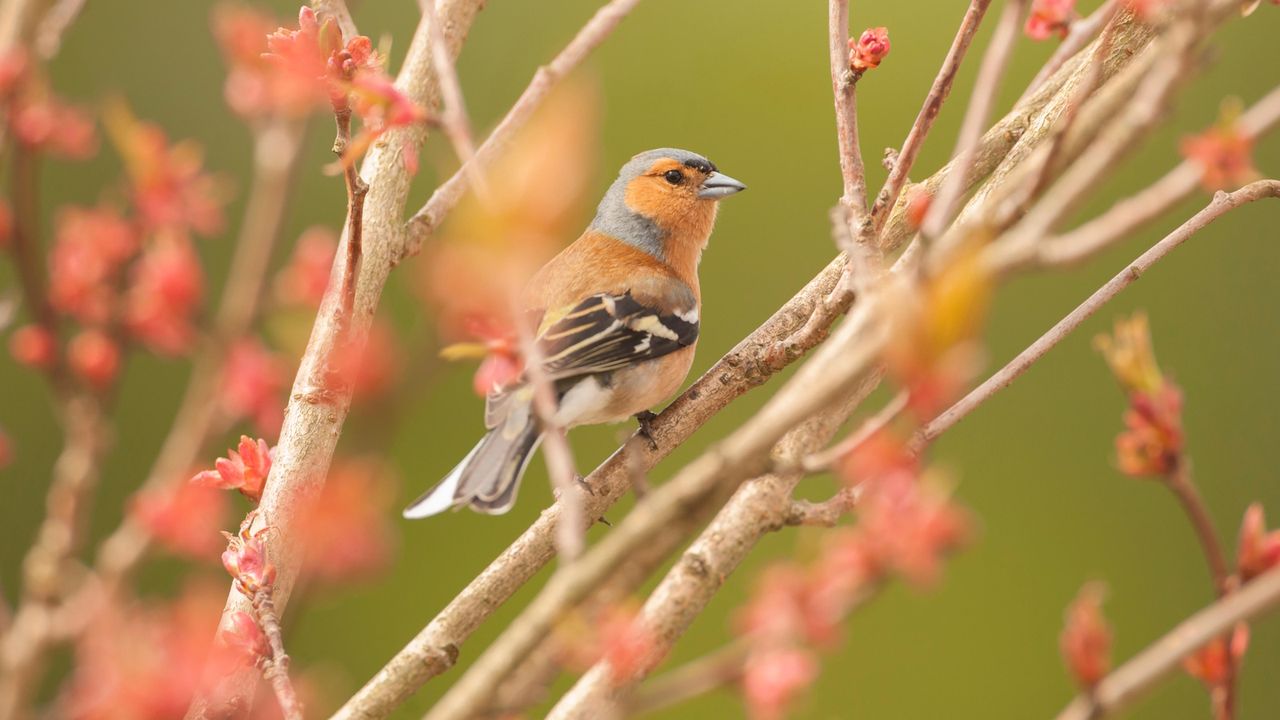

Spring is one of the most important seasons to support the garden birds in your backyard. It's the time of year birds begin nesting and breeding, and they could do with the support of gardeners to create a safe and welcoming environment.
You may already be aware of the numerous ways birds benefit our yards, including pollinating plants, so being able to help birds during breeding season is a great way to give back to them. Plus, it's a rewarding sight to watch so many birds enjoy your backyard and the wildlife haven you have created for them.
I spoke to an avian expert to get a better understanding of how exactly to help birds during breeding season. She also shares tips on what you definitely shouldn't do to leave them undisturbed.
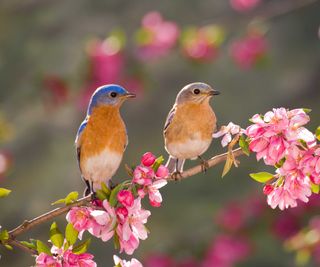
5 ways to help birds during breeding season
If you grow plenty of plants for birds, it's likely you'll have some that choose to nest in your yard. If this is the case, it's best not to disturb them and to rather help birds during breeding season with these five steps:
1. Provide fresh water
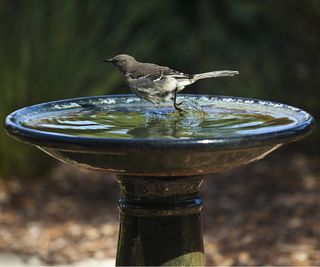
Bird baths are such a valuable resource for birds at any point in the year, but especially during nesting and breeding season.
'Birds need water every single day for drinking, bathing, and feeding their chicks - some species moisten dry food before giving it to nestlings,' explains avian expert Isabelle Manseau. 'Dehydration is a fast-killer, especially in warm weather, so a clean, shallow water source is the number one priority,' she adds.
For this reason, make sure to freshen up any water sources you provide regularly. It's also important to clean bird baths to rid them of debris, bacteria, and other harmful dirt.
Supplying fresh, clean water is made easier with a bird bath fountain pump (from Amazon).

Isabelle is a bird-lover and the founder of Birdzy, a company which specialises in hand-made bird-feeding products.
2. Provide high-protein food sources
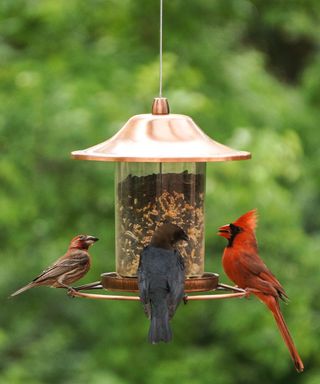
While feeding birds in winter requires plenty of high-fat foods, it's best to provide high-protein foods when aiming to help birds during breeding season.
This keeps birds energized during a busy and tiring season, and should continue to be provided once baby birds arrive, too.
'Chicks require soft, high-protein meals to grow, and parent birds are worn out from continuous foraging,' explains Isabelle. 'Suet balls (from Amazon), soaked raisins (from Walmart), or live mealworms (from Amazon) can save lives, but only if water is already present because they need it to properly digest dry food' she adds.
Consider bird feeder alternatives, too, such as filling borders with nectar and berries.
3. Provide nesting materials
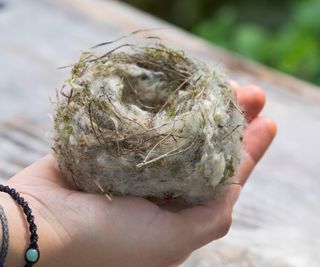
Although this isn't a vital step (as birds tend to be efficient at collecting their own materials), Isabelle notes it can be helpful to ensure nesting materials, like twigs and moss, are available in your yard.
'Although it is considerate to feed fur or twigs, many birds learn to make do with what is available to them naturally,' she says. 'Nesting boxes (from Amazon) are great, but should be set up before breeding season in late-winter.
'By spring, concentrate on the necessities: food, water, and tranquilly,' Isabelle adds.
It's worth researching the best bird houses for the types of birds you get in your yard, too.
4. Avoid cutting hedges and trees
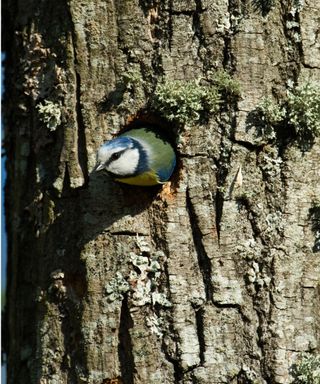
Of course, the best thing you can do to help birds during breeding season is ensure they are protected and undisturbed.
For this reason, avoid pruning tree branches and pruning hedges where nesting birds are residing, even if you feel you need to cut an overgrown hedge.
Instead, it's generally advised to wait until late-summer to do some pruning once birds have moved on.
You should also do some research into the legal restrictions around protecting nesting birds to identify when it's too late to cut hedges to protect nesting birds.
5. Create a peaceful environment for birds
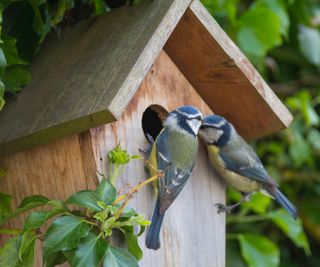
This is especially true once baby birds arrive, Isabelle notes:
'Even with a stocked buffet and fresh water, too much noise or fuss near their nest can spook them into ditching their babies.
'I learned this the hard way last spring, a robin family bolted after my neighbor fired up his leaf blower too close to their hedge,' she says.
Try to keep loud garden machinery to a minimum and keep a watchful eye on any pets that may scare off and disturb birds - you might find our guide on protecting birds from cats useful.
FAQs
How long does bird breeding season last?
Bird breeding season in the US generally spans from late-spring to late-summer. This includes the period when birds care for their young. However, a few factors (such as bird species and temperatures) will impact exactly when birds breed and nest in a particular location.
During the warmer months, there are other tasks you can do to help the birds visiting your yard. This includes cleaning a bird feeder and helping garden birds in summer by growing native plants and avoiding pesticides.
Sign up to the Homes & Gardens newsletter
Design expertise in your inbox – from inspiring decorating ideas and beautiful celebrity homes to practical gardening advice and shopping round-ups.

Tenielle is a Gardens News Writer at Homes & Gardens. She holds a qualification in MA Magazine Journalism and has over six years of journalistic experience. Before coming to Homes & Gardens, Tenielle was in the editorial department at the Royal Horticultural Society and worked on The Garden magazine. As our in-house houseplant expert, Tenielle writes on a range of solutions to houseplant problems, as well as other 'how to' guides, inspiring garden projects, and the latest gardening news. When she isn't writing, Tenielle can be found propagating her ever-growing collection of indoor plants, helping others overcome common houseplant pests and diseases, volunteering at a local gardening club, and attending gardening workshops, like a composting masterclass.
You must confirm your public display name before commenting
Please logout and then login again, you will then be prompted to enter your display name.
-
 I tried the 'GFD' basket tidying trick ahead of hosting – it was a last-minute clutter-busting savior
I tried the 'GFD' basket tidying trick ahead of hosting – it was a last-minute clutter-busting saviorThis quick clean-up fall-back saved my game night
By Chiana Dickson Published
-
 This Venus Williams-approved green shade is the only entryway color you need to know for 2025 – it's designed to evoke tranquility and restfulness
This Venus Williams-approved green shade is the only entryway color you need to know for 2025 – it's designed to evoke tranquility and restfulnessTennis professional turned designer Venus Williams has endorsed one of the most versatile neutrals available – its powers are transformative
By Megan Slack Published